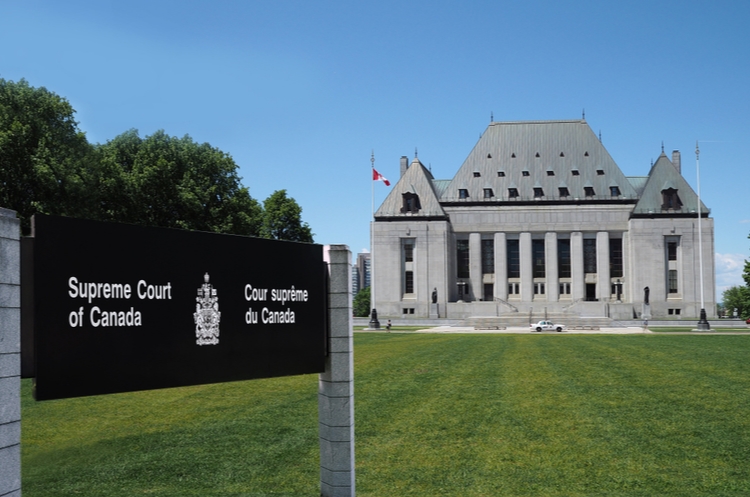Canada (Minister Of Citizenship And Immigration) v. Vavilov: Supreme Court of Canada Revisits the Standard of Review

Introduction
The Supreme Court of Canada has kept the baby but thrown out the bathwater in its recent trilogy of decisions on administrative standards of review.
In 2018, the Supreme Court of Canada granted leave to appeal for three separate cases: Minister of Citizenship and Immigration v. Alexander Vavilov, Bell Canada, et al. v. Attorney General of Canada and National Football League, et al. v. Attorney General of Canada. The Supreme Court of Canada often does not provide reasons when it makes a decision on leave to appeal. In this instance, however, the Court made clear that it viewed these appeals as an opportunity to consider the law applicable to the judicial review of administrative decisions, which had been drastically changed in 2008 with Dunsmuir v. New Brunswick – the leading decision on administrative standards of review.
In the Vavilov decision, the Court charts a new course forward for determining the standard of review that applies when a court reviews the merits of an administrative decision. The Court in Vavilov also provides additional guidance for reviewing courts when conducting a reasonableness review.
How a court will determine the applicable standard of review
The Vavilov decision has clarified that there will be a presumption that reasonableness is the applicable standard whenever a court reviews an administrative decision. This presumption is rebutted, however, in two situations. First, where the legislature explicitly prescribes the applicable standard of review as something other than reasonableness, or where there is a statutory right of appeal. Where the legislature has provided for a statutory right of appeal from an administrative decision, a court hearing such an appeal is to apply the same standards as would an appellate court reviewing a lower court decision.
The Court in Vavilov confirmed that where the legislature has provided for an appeal from an administrative decision to a court, a court hearing such an appeal is to apply appellate standards of review in accordance with the principles in Housen v. Nikolaisen. Accordingly, where a court is considering questions of law on a statutory appeal, the standard of correctness will apply (See Housen, para 8). Where the statutory appeal includes questions of fact, or certain questions of mixed fact and law, the standard of review is that of “palpable and overriding error” (See Housen, para 10).
Second, the presumption of reasonableness is rebutted where the “rule of law” requires that the standard of correctness be applied (i.e: constitutional questions, general legal questions of central importance and questions related to jurisdictional boundaries between administrative bodies).
How a court will conduct a review under the reasonableness standard
Having clarified the framework for determining the applicable standard of review, the Vavilov decision moves on to provide guidance on the proper application of the reasonableness standard, attempting to articulate what the reasonableness standard entails and how it should be applied in practice. Some of the key elements highlighted by the Court are as follows:
- Where required, reasons are the primary mechanism to evaluate whether a decision is reasonable (Vavilov, para 81);
- A court’s reasonableness review must focus on the decision actually made by the decision maker, including both the reasoning process and the outcome, rather than the court deciding on the issues themselves (Vavilov, paras 83, and 88-90);
- Written reasons must not be assessed against a standard of perfection, and must be read in light of the history and context of the proceedings in which they were rendered (Vavilov, paras 91, 94);
- A reviewing court must be attentive to the specialized knowledge and demonstrated experience and expertise of the administrative decision maker (Vavilov, para 93);
- The burden is on the party challenging the decision to show that it is unreasonable (Vavilov, para 100);
- A non-exhaustive list of the legal and factual considerations relevant to assessing reasonableness includes:
- The governing statutory scheme; relevant statutory or common law; the principles of statutory interpretation; the evidence before the decision maker and the facts of which the decision maker takes notice; the submissions of the parties; the past practices and decisions of the administrative body; and the potential impact of the decision on the individual (Vavilov, para 106);
- Where procedural fairness or the legislative scheme mandates that reasons be given, a failure to do so will generally require the decision to be set aside and the matter remitted to the decision maker (Vavilov, para 136); and
- Where reasons are provided, but fail to provide a transparent and intelligible justification, the decision will be unreasonable (Vavilov, para 136).
How does this decision affect pending appeals and judicial review applications?
The Vavilov decision does not upend all existing standard of review jurisprudence. It does, however, represent a “recalibration” of the approach that courts must take when choosing the appropriate standard of review. The Court in Vavilov notes that a judge tasked with determining the appropriate standard of review must first look to the reasons in Vavilov to assess whether, and how, the “recalibrated” framework applies to the case before it. Appellants must similarly be mindful that the Vavilov decision may have introduced a new standard of review applicable to their particular case. As a practical note, appellants with pending appeals and judicial review applications should review the Vavilov decision to assess whether a different standard of review now applies, and whether facta and other documents must be amended accordingly.
As an example, previous jurisprudence established that decisions of the Landlord and Tenant Board, which are appealable on questions of law, are subject to review on a standard of reasonableness (see Onyskiw v. CJM Property Management Ltd., 2016 ONCA 477 at para 29). As discussed, however, the Court in Vavilov has now directed that statutory appeals of questions of law will be subject to the standard of correctness.
It can be expected that the Vavilov decision will be seen in upcoming decisions on appeals from administrative tribunals, particularly where those are permitted by statute.
*The author acknowledges and thanks David Stevens for his contributions to this post.

